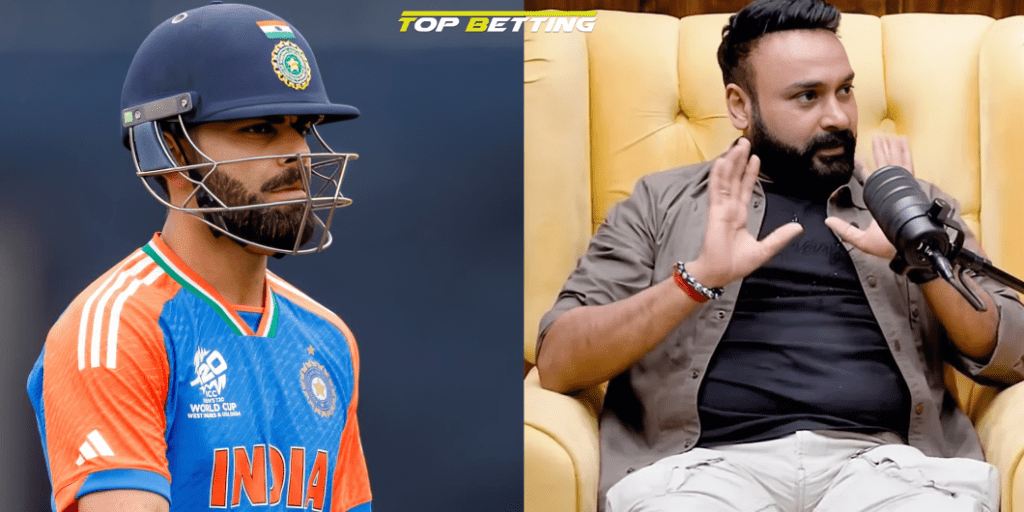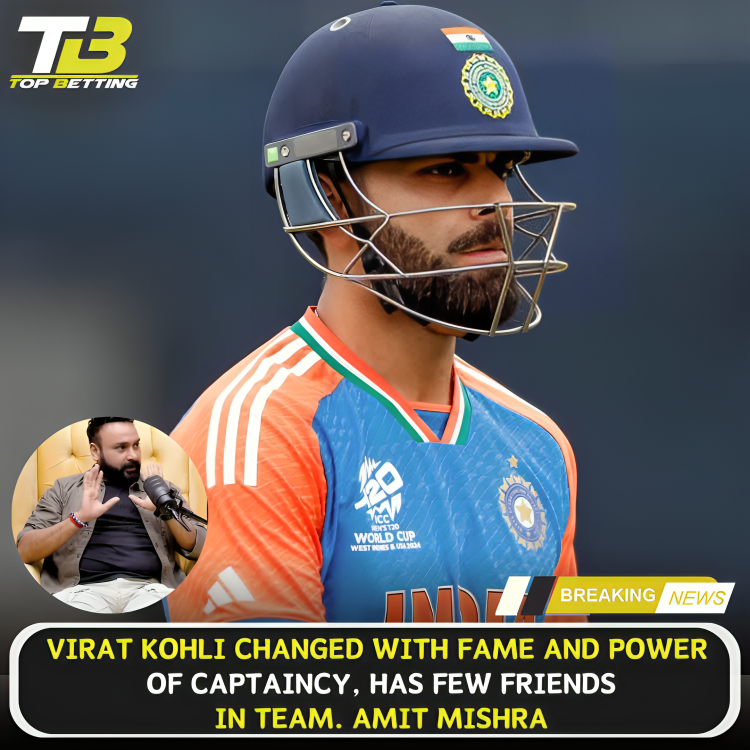
Virat changed with fame and power of captaincy
The Rise to Fame and Power of Captaincy
Virat Kohli’s journey in the world of cricket has been nothing short of extraordinary. From a young, promising player to the current captain of the Indian national team, Kohli’s rise to prominence has been a testament to his exceptional talent, unwavering determination, and sheer passion for the sport. However, with the immense fame and power that comes with the captaincy, Kohli’s relationships within the team have undergone a significant transformation, as revealed by his teammate Amit Mishra.
Kohli’s ascent to the captaincy has undoubtedly been a remarkable achievement, one that has cemented his status as one of the greatest cricketers of his generation. As the leader of the Indian team, Kohli has been instrumental in driving the team’s success, leading them to numerous victories and establishing a formidable reputation on the international stage. His ability to inspire his teammates, his relentless pursuit of excellence, and his unwavering commitment to the team’s success have all contributed to his rise as a cricketing icon.
However, with the power and responsibility that comes with the captaincy, Kohli’s personal relationships within the team have undergone a significant shift. According to Amit Mishra, Kohli’s teammate, the captain now has fewer close friends among his fellow players, a testament to the challenges that come with the increased fame and power that Kohli has acquired over the years. This revelation sheds light on the often-overlooked personal toll that the captaincy can take on an individual, even within the close-knit environment of a cricket team.
The Impact of Fame and Power on Virat Kohli
Virat Kohli’s transformation from a talented cricketer to a revered captain has been a captivating journey to witness. As he has risen to the pinnacle of his sport, the spotlight has intensified, and the demands placed upon him have grown exponentially. With the power and influence that come with the captaincy, Kohli’s relationships with his teammates have inevitably been affected, as Amit Mishra’s comments have revealed.
The weight of captaincy is a burden that few can truly understand. Kohli is not only responsible for leading his team to victory on the field but also for representing the entire nation, both on and off the pitch. This immense responsibility, coupled with the constant media scrutiny and public adoration, has undoubtedly taken a toll on Kohli’s personal life and his relationships with his teammates.
As Kohli’s fame and power have grown, it is understandable that his priorities and perspectives may have shifted. The demands of his role as captain, the pressure to perform at the highest level, and the ever-present spotlight have all contributed to a change in his personality and behavior. It is no longer just about his own performance; Kohli must now consider the well-being and dynamics of the entire team, which can be a delicate and challenging balance to maintain.
Changes in Virat Kohli’s Personality and Behavior
The transformation that Virat Kohli has undergone since becoming the captain of the Indian cricket team is not only reflected in his on-field performances but also in his off-field persona. As Amit Mishra’s comments suggest, Kohli’s relationships with his teammates have evolved, and the captain now has fewer close friends within the team.
This change in Kohli’s personality and behavior can be attributed to the immense pressure and responsibility that come with the captaincy. As the leader of the team, Kohli is expected to be a role model, an inspiration, and a source of guidance for his teammates. The constant scrutiny from the media and the public, coupled with the weight of the nation’s expectations, can be a heavy burden to bear, and it is understandable that Kohli’s priorities and perspectives may have shifted as a result.
Moreover, the captaincy has likely altered Kohli’s approach to the game and his interactions with his teammates. As the leader, he may have had to make difficult decisions, prioritize the team’s success over individual relationships, and maintain a certain level of distance to ensure that he can effectively lead the team. This shift in focus, from personal relationships to the greater good of the team, may have contributed to the perceived changes in Kohli’s personality and the reduction in the number of close friends he has within the squad.
Conclusion: The Evolving Journey of Virat Kohli
Virat Kohli’s transformation from a talented cricketer to the captain of the Indian national team has been a captivating journey to witness. His rise to fame and power has undoubtedly come with a personal cost, as revealed by his teammate Amit Mishra’s comments about Kohli’s reduced number of close friends within the team.

The captaincy has brought with it immense responsibility, both on and off the field, and this has inevitably altered Kohli’s relationships with his teammates. The demands of the role, the constant media scrutiny, and the weight of the nation’s expectations have all contributed to a shift in Kohli’s personality and behavior, as he has had to navigate the delicate balance between leading the team and maintaining personal bonds.











